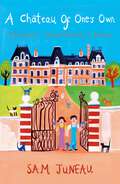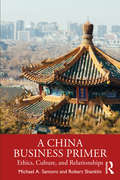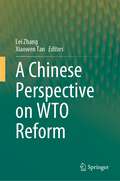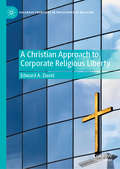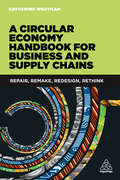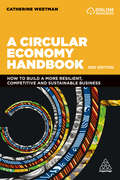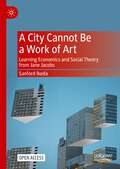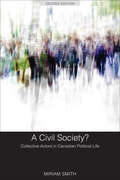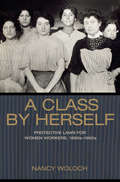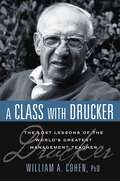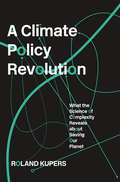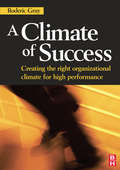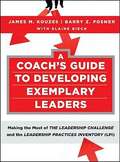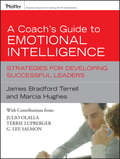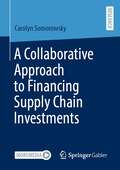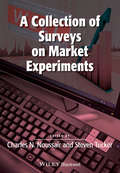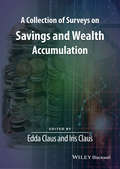- Table View
- List View
A Challenger's Strategy: Pinar Abay at ING Bank Turkey
by Gautam Mukunda Paul M. Healy Esel CekinIn 2013, Pinar Abay was appointed as the CEO of ING Bank Turkey. At 34, she was the youngest bank CEO in Turkey's history. Her appointment raised eyebrows because of her youth and because her career at McKinsey had given her no day-to-day bank management experience. ING, however, wanted a younger leader who could relate to Turkey's young and digitally savvy population. Upon her appointment, Abay determined that major changes were required in operations, personnel and culture. She adopted a variety of innovative approaches to making these changes, ranging from non-traditional hires to sitting for hours in call centers to personally answering customer complaints on Twitter. As Turkey's 12th largest bank, however, ING Turkey lacked scale, so Abay and her team considered a number of non-traditional ways to organize distribution and market the bank to promote growth.
A Changing World: New Kinds of Organizations, New Kinds of Teams
by Deborah Ancona Henrik BresmanThe new fierce, innovation-based competitive environment has forced radical changes in the context in which teams must manage the challenges they're now being asked to tackle: specifically, changes in the organizational structures in which teams operate, in the structure of knowledge with which they work, and in the structure of tasks they perform. In the new loose, distributed organization, the model of internally focused teams that has dominated in the past is no longer sufficient. Today, teams need to find ways to proactively engage the external environment as well as the internal one and to exert bold organizational leadership.
A Chateau of One's Own: Restoration Misadventures in France
by Sam JuneauSam and Bud intended to move to France and create a simple life with their children. However they bought a 17th century chateau with over thirty rooms. With modest savings, they restored the building and started a bed and breakfast against resistance from the locals. This is a glimpse into what it takes to leave everything behind to pursue a dream.
A Chateau of One's Own: Restoration Misadventures in France
by Sam JuneauSam and Bud intended to move to France and create a simple life with their children. However they bought a 17th century chateau with over thirty rooms. With modest savings, they restored the building and started a bed and breakfast against resistance from the locals. This is a glimpse into what it takes to leave everything behind to pursue a dream.
A China Business Primer: Ethics, Culture, and Relationships
by Michael A. Santoro Robert ShanklinThe COVID-19 pandemic underscored longstanding fissures in China’s business relationships with the West. If the West is going to develop a relationship of mutual trust and improve business relations with China in the coming decades, it is imperative to understand how to engage with Chinese thinking on ethics in business—this book explains how. Government officials, businesspeople, and business-ethicists have trouble communicating about issues in ethics, policy, and business across the China-West divide. This book shows how to overcome the us-versus-them mindset plaguing China-West relations by presenting to Western audiences an easy-to-understand yet deeply informed primer on core ideas and perspectives in Chinese cultural and philosophical thought. The book considers original texts of Chinese philosophy and religion, and applies principles from those writings to three business-ethics topics of enduring interest to business executives, government officials, and academics, namely, the protection of intellectual property, assurance of product safety and quality in the pharmaceutical supply chain, and human rights. This book is a must-read for those who want to forge constructive relationships with their Chinese counterparts based on mutual trust and understanding. The book is specifically relevant to business executives, but it should also be of interest to policymakers, educators, and students who seek to communicate more effectively with their Chinese counterparts, in particular about difficult and contentious business, policy, and ethical issues.
A China Passage
by John Kenneth GalbraithIn 1972, John Kenneth Galbraith, with his two predecessor presidents of the American Economic Association, Professors Wassily Leontief of Harvard and James Tobin of Yale, was invited to visit China to obtain a privileged view of the Chinese economy.
A Chinese Perspective on WTO Reform
by Lei Zhang Xiaowen TanThis book discusses the most recent developments in the WTO regime. Issues such as E-commerce, security exception clause, China's compliance with the WTO obligations, sustainability development, IP protection in FTZs, trade controls and etc., are at the forefront of WTO studies. These issues strongly influence people's understanding of the current role of WTO and provides possible way to revitalize the function of WTO. Meanwhile, as the world's second largest economy, the world's largest trading nation and the holder of the world's largest foreign exchange reserves, China is apparently a powerful figure in leading these issues. Therefore, this book explores extensively these issues from a Chinese perspective to see what China could do to reboost the world trade.
A Christian Approach to Corporate Religious Liberty (Palgrave Frontiers in Philosophy of Religion)
by Edward A. DavidThis book addresses one of the most urgent issues in contemporary American law—namely, the logic and limits of extending free exercise rights to corporate entities. Pointing to the polarization that surrounds disputes like Burwell v. Hobby Lobby, David argues that such cases need not involve pitting flesh-and-blood individuals against the rights of so-called “corporate moral persons.” Instead, David proposes that such disputes should be resolved by attending to the moral quality of group actions. This approach shifts attention away from polarizing rights-talk and towards the virtues required for thriving civic communities. More radically, however, this approach suggests that groups themselves should not be viewed as things or “persons” in the first instance, but rather as occasions of coordinated activity. Discerned in the writings of Saint Thomas Aquinas, this reconceptualization helps illuminate the moral stakes of a novel—and controversial—form of religious freedom.
A Chronology of Integrated Reporting
by Robert G. Eccles Michael P. KrzusThis technical note traces the development of integrated reporting through published materials, research, and the formation of various committees. Readers will gain an understanding of how the topics of nonfinancial information, sustainable development, corporate disclosure, and integrated reporting, among others, overlap.
A Circular Economy Handbook for Business and Supply Chains: Repair, Remake, Redesign, Rethink
by Catherine WeetmanA Circular Economy Handbook for Business and Supply Chains is an easily digestible and comprehensive handbook that provides a clear guide to the circular economy. Real examples across a range of market sectors help businesses, students and policymakers understand the theory and fast-developing practice of the circular economy. A holistic framework for the 'design and supply chain', business models and enablers helps generate ideas, and the book includes tools to help you get started. Whilst growing global consumption presents fantastic business opportunities, our current 'linear' systems - take some materials, make a product, use it and then throw it away - are not fit for purpose. The circular economy unlocks this problem by 'decoupling' resources from consumption. Switched-on businesses are re-thinking product design, material choices, business models and supply chains. A Circular Economy Handbook for Business and Supply Chains is a 'must-read' for anyone who wants to apply the circular economy today.
A Circular Economy Handbook: How to Build a More Resilient, Competitive and Sustainable Business
by Catherine WeetmanWINNER: 2018 Les Plumes des Achats & Supply Chain - The Committee Special Prize As we learn more about the climate and biodiversity crisis, it is clear that how we make and consume things is a major part of the problem. Extraction and processing of materials, fuels and food makes up about half of global greenhouse gas emissions and over 90% of biodiversity loss and water stress. Many modern businesses deplete resources, destroy ecosystems and dump waste and pollution at every stage - harming human health along the way. Governments, businesses and think-tanks see the circular economy as the way forward. Now in its second edition, A Circular Economy Handbook is a guided tour through the concepts and the practicalities. A unique framework systematically explores the range of circular interventions, including product and supply chain design, material choice and supporting business models. How does it really work for business? What circular approaches are emerging in food, fashion, consumer technology, packaging and other sectors? How do these reduce risk, improve resilience and build profitable, future-fit organizations? With over 300 real examples from around the world, this is a must-read for businesses, students and policymakers. This new edition has been extensively updated to include the latest trends, thinking, research and solutions, with a new chapter on packaging and 30 new company snapshots.
A City Cannot Be a Work of Art: Learning Economics and Social Theory From Jane Jacobs
by Sanford IkedaThis open access book connects Jane Jacobs's celebrated urban analysis to her ideas on economics and social theory. While Jacobs is a legend in the field of urbanism and famous for challenging and profoundly influencing urban planning and design, her theoretical contributions – although central to her criticisms of and proposals for public policy – are frequently overlooked even by her most enthusiastic admirers. This book argues that Jacobs’s insight that “a city cannot be a work of art” underlies both her ideas on planning and her understanding of economic development and social cooperation. It shows how the theory of the market process and Jacobs’s theory of urban processes are useful complements – an example of what economists and urbanists can learn from each other. This Jacobs-cum-market-process perspective offers new theoretical, historical, and policy analyses of cities, more realistic and coherent than standard accounts by either economists or urbanists.
A Civil Society?: Collective Actors in Canadian Political Life, Second Edition
by Miriam SmithA Civil Society? surveys the main approaches to the study of group politics in Canada, with a strong comparative perspective. Unique to this brief and accessible text is a comprehensive theoretical framework that helps students evaluate policy areas surveyed in the book, while also pointing them toward future study. This new edition opens with a discussion of power, political institutions, and identity. It goes on to explore group and social movement activity across a range of institutions including the House of Commons, the bureaucracy, and the courts as well as mobilization through social media and the electoral system. Throughout, Smith systematically integrates consideration of the role of gender, racialization, and indigeneity in contemporary Canadian group and movement politics.
A Class by Herself: Protective Laws for Women Workers, 1890s-1990s
by Nancy WolochA Class by Herself explores the historical role and influence of protective legislation for American women workers, both as a step toward modern labor standards and as a barrier to equal rights. Spanning the twentieth century, the book tracks the rise and fall of women-only state protective laws--such as maximum hour laws, minimum wage laws, and night work laws--from their roots in progressive reform through the passage of New Deal labor law to the feminist attack on single-sex protective laws in the 1960s and 1970s. Nancy Woloch considers the network of institutions that promoted women-only protective laws, such as the National Consumers' League and the federal Women's Bureau; the global context in which the laws arose; the challenges that proponents faced; the rationales they espoused; the opposition that evolved; the impact of protective laws in ever-changing circumstances; and their dismantling in the wake of Title VII of the Civil Rights Act of 1964. Above all, Woloch examines the constitutional conversation that the laws provoked--the debates that arose in the courts and in the women's movement. Protective laws set precedents that led to the Fair Labor Standards Act of 1938 and to current labor law; they also sustained a tradition of gendered law that abridged citizenship and impeded equality for much of the century. Drawing on decades of scholarship, institutional and legal records, and personal accounts, A Class by Herself sets forth a new narrative about the tensions inherent in women-only protective labor laws and their consequences.
A Class with Drucker: The Lost Lessons of the World's Greatest Management Teacher
by William CohenLong considered the world's greatest thinker and writer on management, Peter Drucker's teachings continue to inspire leaders everywhere. From 1975 to 1979, author William Cohen studied under the Great Man and became the first graduate of his doctoral program. What Drucker taught him literally changed his life. In a matter of a few years, he was recommissioned in the Air Force and rose to the rank of major general. Eventually, he became a full professor, management consultant, multibook author, and university president--as well as maintaining a nearly lifelong friendship with the master.In "A Class with Drucker", Cohen shares many of Drucker's teachings that never made it into his countless books and articles, ideas that were offered to his students in classroom or informal settings. Cohen expands on Drucker's lessons with personal anecdotes about his teacher's personality, lack of pretension, and interactions with students and others. He also shows how Drucker's ideas can be applied to the real-world challenges managers face today. Enlightening and intriguing, "A Class with Drucker" will enable anyone to gain from the timeless wisdom of the inspiring man himself.
A Climate Policy Revolution: What the Science of Complexity Reveals about Saving Our Planet
by Roland KupersHumanity’s best hope for confronting the looming climate crisis rests with the new science of complexity. The sheer complexity of climate change stops most solutions in their tracks. How do we give up fossil fuels when energy is connected to everything, from great-power contests to the value of your pension? Global economic growth depends on consumption, but that also produces the garbage now choking the oceans. To give up cars, coal, or meat would upend industries and entire ways of life. Faced with seemingly impossible tradeoffs, politicians dither and economists offer solutions at the margins, all while we flirt with the sixth extinction. That’s why humanity’s last best hope is the young science of complex systems. Quitting coal, making autonomous cars ubiquitous, ending the middle-class addiction to consumption: all necessary to head off climate catastrophe, all deemed fantasies by pundits and policymakers, and all plausible in a complex systems view. Roland Kupers shows how we have already broken the interwoven path dependencies that make fundamental change so daunting. Consider the mid-2000s, when, against all predictions, the United States rapidly switched from a reliance on coal primarily to natural gas. The change required targeted regulations, a few lone investors, independent researchers, and generous technology subsidies. But in a stunningly short period of time, shale oil nudged out coal, and carbon dioxide emissions dropped by 10 percent. Kupers shows how to replicate such patterns in order to improve transit, reduce plastics consumption, and temper the environmental impact of middle-class diets. Whether dissecting China’s Ecological Civilization or the United States’ Green New Deal, Kupers describes what’s folly, what’s possible, and which solutions just might work.
A Climate of Success
by Roderic GrayCould your organization be a better place to work? What effect would that have on the quality and quantity of what gets done?This book examines the concept of organizational climate ('what it feels like to work here') in a readable and accessible way without sacrificing academic rigour. Using case studies to illustrate the causes and consequences of various climate factors, it makes practical suggestions for how improvements can be made - to everyone's benefit.Building on current research, this book shows how perceptions of climate arise, the effects they can have on performance, and how managers can influence these perceptions and apply their understanding to improve their own and their people's effectiveness.
A Clinical Approach to the Dynamics of Leadership and Executive Transformation
by Elisabet Engellau Manfred F.R. Kets de VriesLike it or not, abnormal behavior is more "normal" than most people are prepared to admit; all of us have a neurotic side. Drawing on clinical data and psychoanalytical concepts, the authors of this chapter explore the following questions: Is the typical executive really a logical, dependable human being? Is management really a rational task performed by rational people according to sensible organizational objectives? They undertake a psychoanalytically informed investigation to discover how people and the organizations they work in really function, highlighting the importance of three triangles: the mental life triangle, the conflict triangle, and the relationships triangle. The chapter concludes with ideas about how to design and deliver a transformational leadership program within the context of a business school that encourages future executives to look into the original sources of their behavior and start the process of self-exploration. This chapter was originally published as Chapter 7 of "Handbook of Leadership Theory and Practice: A Harvard Business School Centennial Colloquium."
A Close Shave at Squire
by Michael Norris Jeffrey J. Bussgang William R. Kerr Benjamin N. Roth Zoe B. CullenIn 2020, just after closing a $34 million Series B financing round, Dave Salvant and Songe LaRon consider how to adjust their business, Squire Technologies, to the new realities posed by the COVID-19 pandemic. Their barbershop technology, including tools to run a shop and a mobile app for customers was growing swiftly, but with nearly all barbershops shut down to prevent the spread of the disease and no revenue coming in, should they cut back, or take the opportunity to build up?
A Coach's Guide to Developing Exemplary Leaders
by Elaine Biech James M. Kouzes Barry Z. PosnerKouzes' and Posner's bestselling The Leadership Challenge has been the most trusted source for becoming a better leader for millions of executives. This new guide from Kouzes and Posner, written in conjunction with coaching experts Elaine Biech, provides practical information and tools for integrating The Practices of Exemplary Leadership into a coaching practice or program. Filled with best practices and success stories as well as worksheets and checklists, this comprehensive resource enables coaches to quickly and easily adapt their coaching regimen to include The Leadership Challenge and the Leadership Practices Inventory (LPI).
A Coach's Guide to Emotional Intelligence
by James Bradford Terrell Marcia HughesA Coach?s Guide to Emotional Intelligence is a groundbreaking book that combines the topics of coaching and emotional intelligence in a down-to-earth resource for coaches, facilitators, and consultants. The authors, James Bradford Terrell and Marcia Hughes ?two experts in the field of emotional intelligence training?offer a number of elegant solutions that help coaches and their clients develop the authentic emotional skills needed to meet the challenges of today?s increasingly complex world. The book clearly shows how EI coaching can be applied within organizations and provides a solid coaching method for use with leaders in business settings. The book outlines five highly-effective strategies for developing influential leaders.
A Coincident Indicator of the Gulf Cooperation Council (GCC) Business Cycle
by Abdullah Al-HassanA report from the International Monetary Fund.
A Collaborative Approach to Financing Supply Chain Investments
by Carolyn SomorowskyCompetitive advantage is not achieved by a single company, but rather by the entire supply chain, with a focus on improving the flow of information, finance and goods. Improving these flows requires strategic investments relevant to the supply chain that are often long-term, capital-intensive, relationship-specific, and therefore risky. The past financial or COVID-19 crisis has made banks more risk averse, making it more expensive for supply chain members to finance risky investments or even more difficult to raise funds from external financial institutions. Supply chain finance is a young discipline that focuses on improving financial flows through a collaborative approach. Since most strategic investments are made by suppliers facing financial constraints, there is a high likelihood that supply chain disruptions will occur because the financing party becomes insolvent, or the investments do not materialize. To encourage strategic investments and avoid supply chain disruptions, a model is developed in which supply chain members leverage their financial and operational capabilities to realize these investments and share costs, risks, and benefits according to their contribution. The proposed model is based on a structured coalition game with transferable utility that determines the supply chain members best able to finance the investments without compromising supply chain stability.
A Collection of Surveys on Market Experiments (Surveys of Recent Research in Economics)
by Steven Tucker Charles N. NoussairComprised of 10 surveys by leading scholars, this collection showcases the largest and fastest growing strands of research on market behaviour in experimental economics. Covers topics such as asset markets, contests, environmental policy, frictions, general equilibrium, labour markets, multi-unit auctions, oligopoly markets, and prediction markets Focuses on the literature that has helped economists best understand how markets operate Assesses the impact of developments in theory, policy, and research methods
A Collection of Surveys on Savings and Wealth Accumulation (Surveys of Recent Research in Economics)
by Edda ClausIn this collection of critical surveys the reader is provided with a range of up-to-date work from some of the leading scholars in the area, writing on private and public sector aspects of savings and wealth accumulation. A survey of savings and wealth accumulation which are important dimensions of research and policy debates Discusses the measurement of genuine savings and sustainability, the estimation of wealth inequality, and recent developments in consumer credit and defaults Evaluates the impact of student loans on financial well-being, people’s retirement decisions, and the impact of pension reform Considers the distribution of wealth across generations and the importance of accurately measuring government debt, the rise of sovereign wealth funds and Islamic banking and finance

